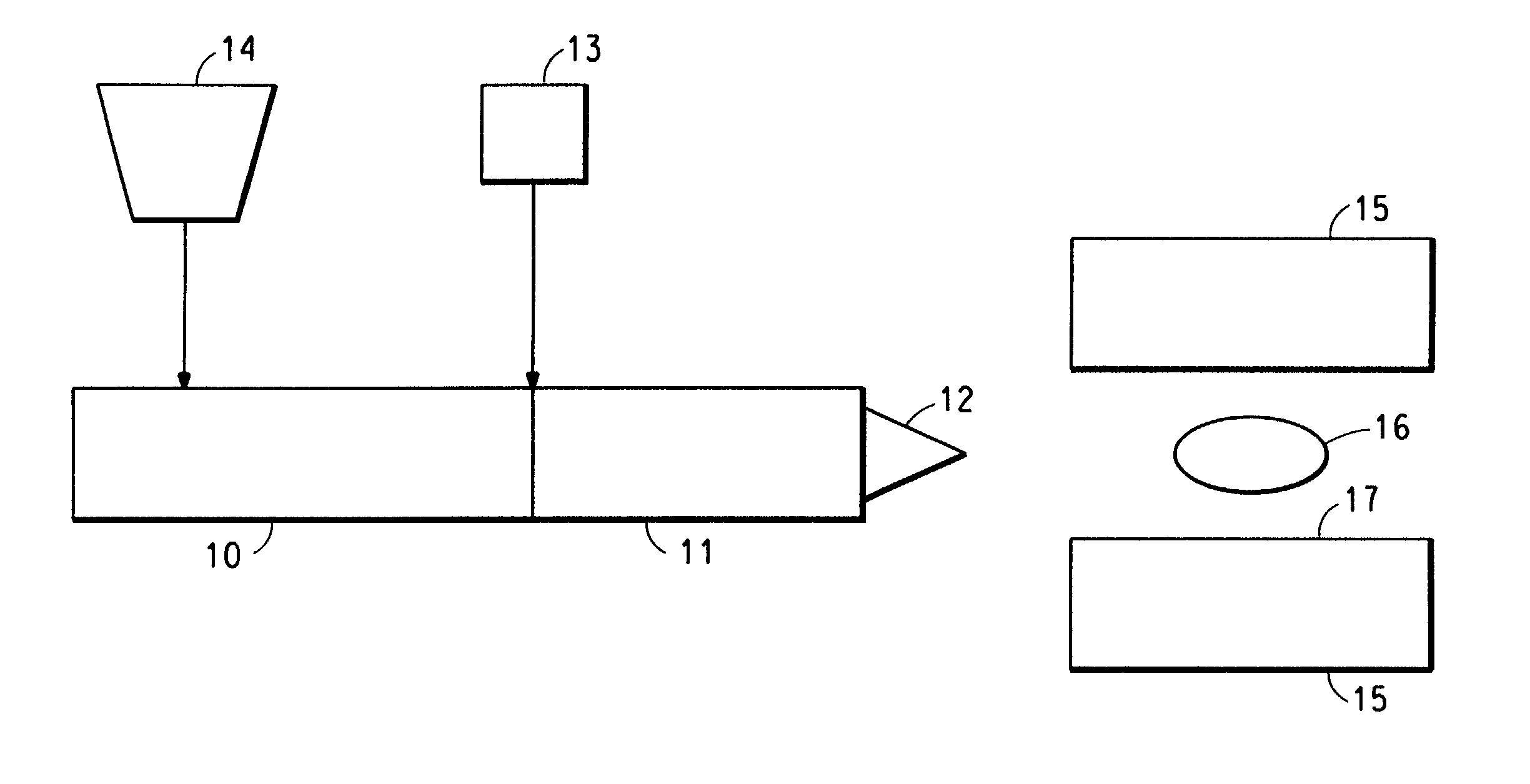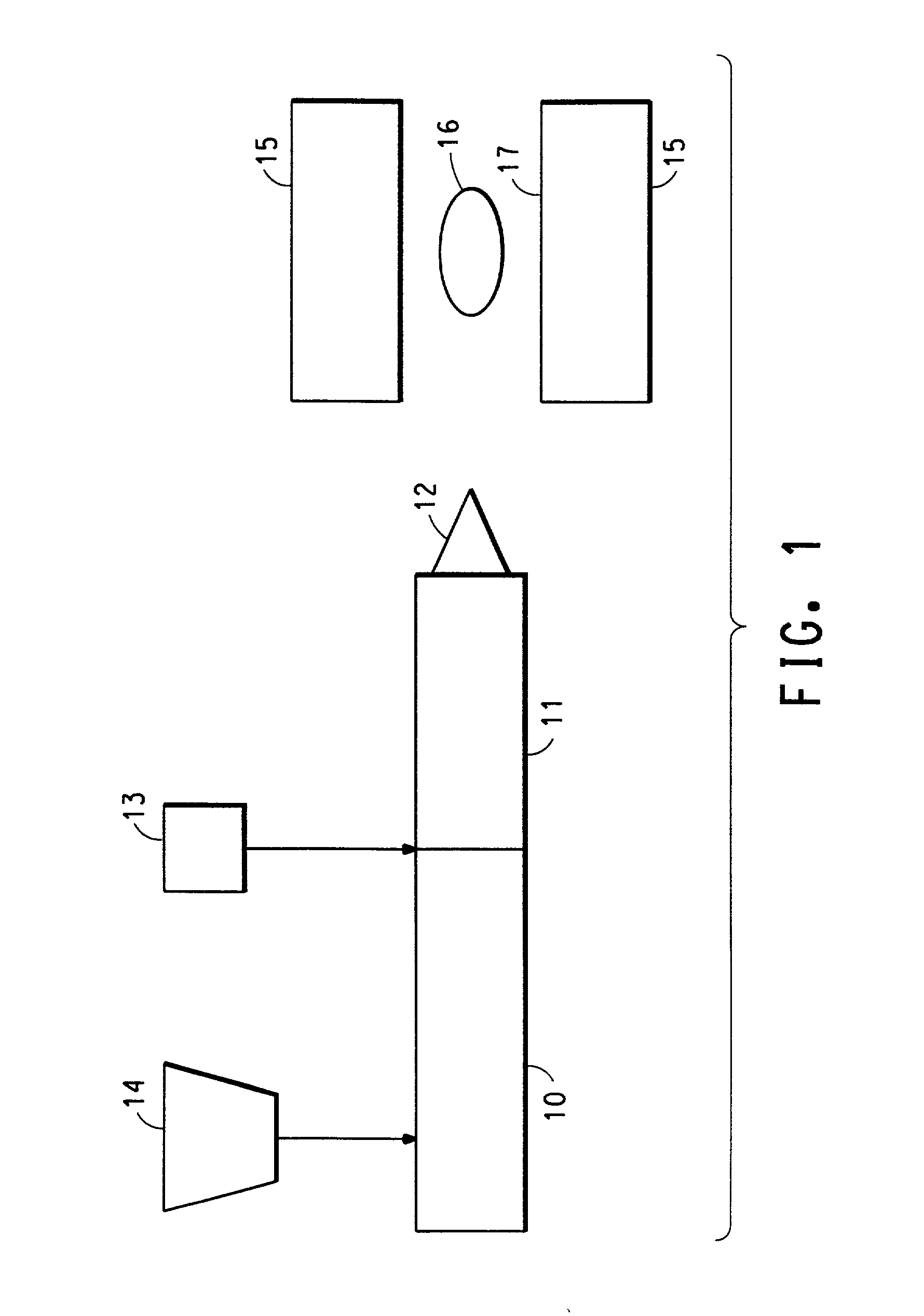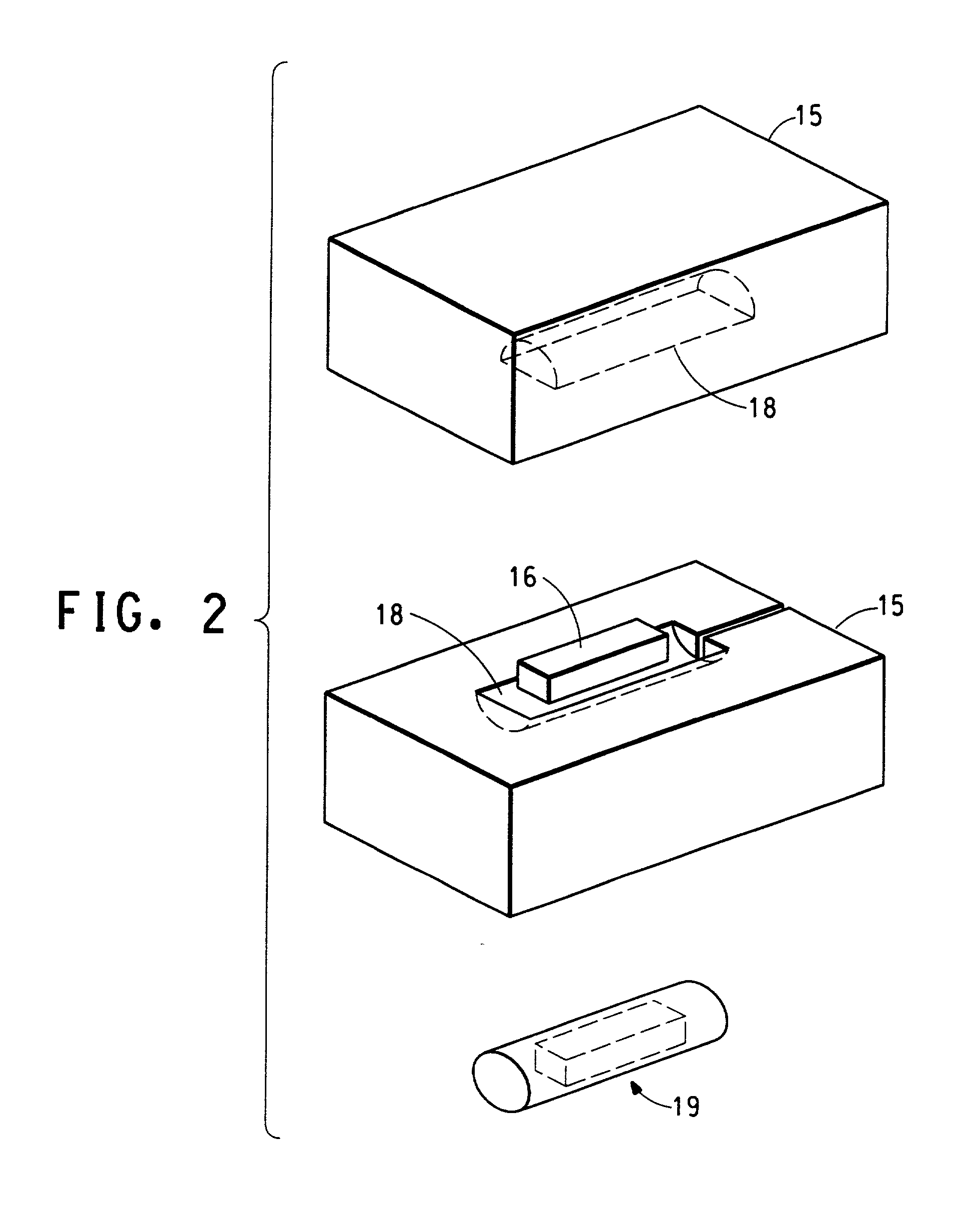Encapsulation using microcellular foamed materials
a technology of microcellular foam and encapsulation, which is applied in the direction of electrical apparatus casing/cabinet/drawer, other domestic articles, and semiconductor/solid-state device details. it can solve the problems of loss of performance and process productivity or process productivity, damage to electronic or electrical components or delicate objects to be packaged, and the effect of reducing the economic attractiveness of injection molding encapsulation
- Summary
- Abstract
- Description
- Claims
- Application Information
AI Technical Summary
Problems solved by technology
Method used
Image
Examples
Embodiment Construction
[0041] An injection molding encapsulation machine known as an AllRounder 66 ton 320C. (available from Arburg, Inc., Newington, Conn., USA) was retrofitted with an SCF (Super Critical Fluid) TR10 5000G System (available from Trexel, Inc., Woburn, Massachusetts). The machine was used to encapsulate wound coils using Crastin.RTM. SK605 (available from E.I. du Pont de Nemours and Company, Wilmington, Del., USA) using nitrogen as the supercritical fluid.
[0042] Forty five (45) wound coils were manufactured therefrom with three separate process set-ups, in lots of fifteen (15) coils each. Additionally, twelve (12) wound coils were manufactured using a standard injection molding process as a control. Encapsulated material weight reductions in the test coils were observed from approximately 5% to 27% when compared with the control encapsulated material weight. Resistance levels (in ohms) of the coils were measured before encapsulation and immediately after encapsulation. The rise in resistan...
PUM
| Property | Measurement | Unit |
|---|---|---|
| cell size | aaaaa | aaaaa |
| cell size | aaaaa | aaaaa |
| resistance | aaaaa | aaaaa |
Abstract
Description
Claims
Application Information
 Login to View More
Login to View More - R&D
- Intellectual Property
- Life Sciences
- Materials
- Tech Scout
- Unparalleled Data Quality
- Higher Quality Content
- 60% Fewer Hallucinations
Browse by: Latest US Patents, China's latest patents, Technical Efficacy Thesaurus, Application Domain, Technology Topic, Popular Technical Reports.
© 2025 PatSnap. All rights reserved.Legal|Privacy policy|Modern Slavery Act Transparency Statement|Sitemap|About US| Contact US: help@patsnap.com



